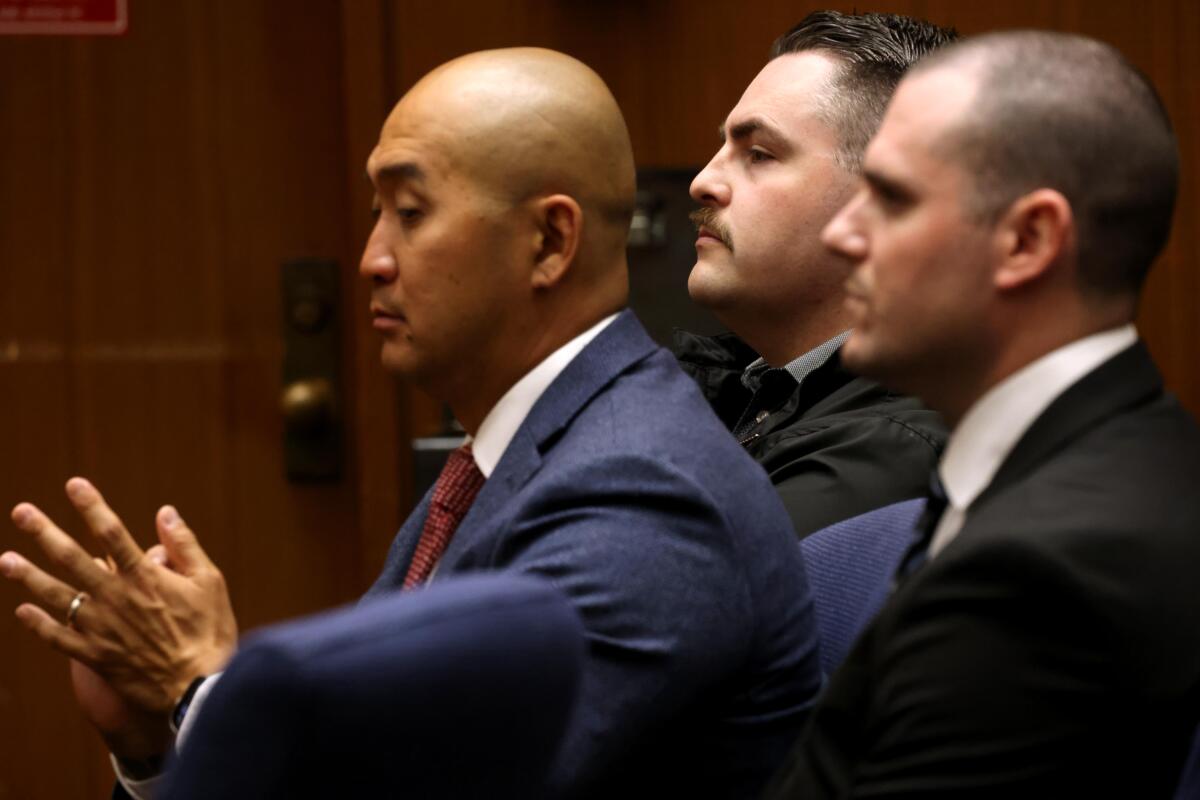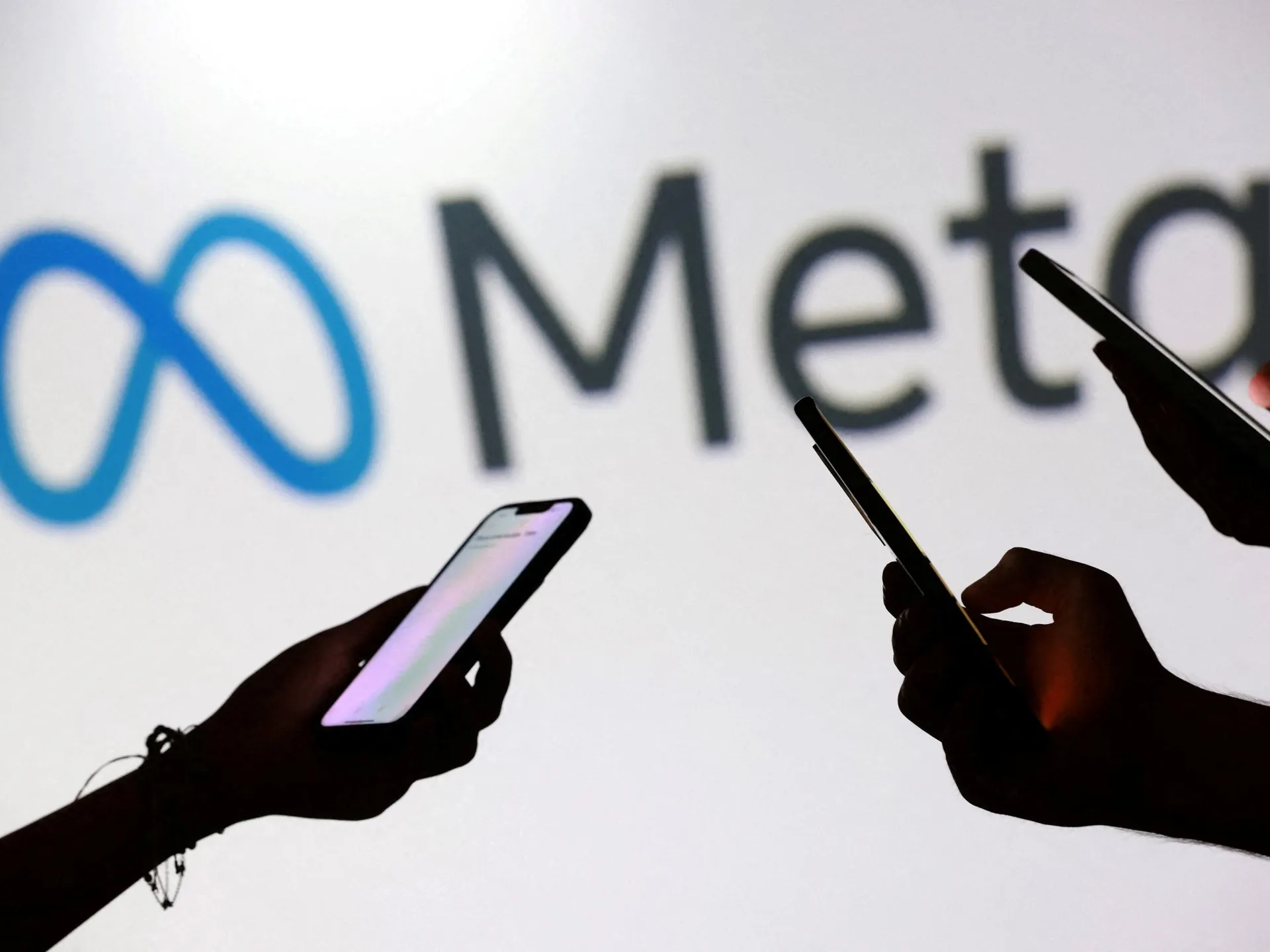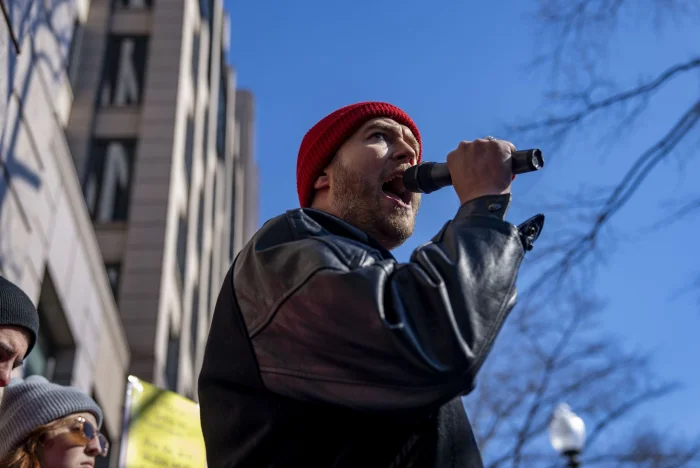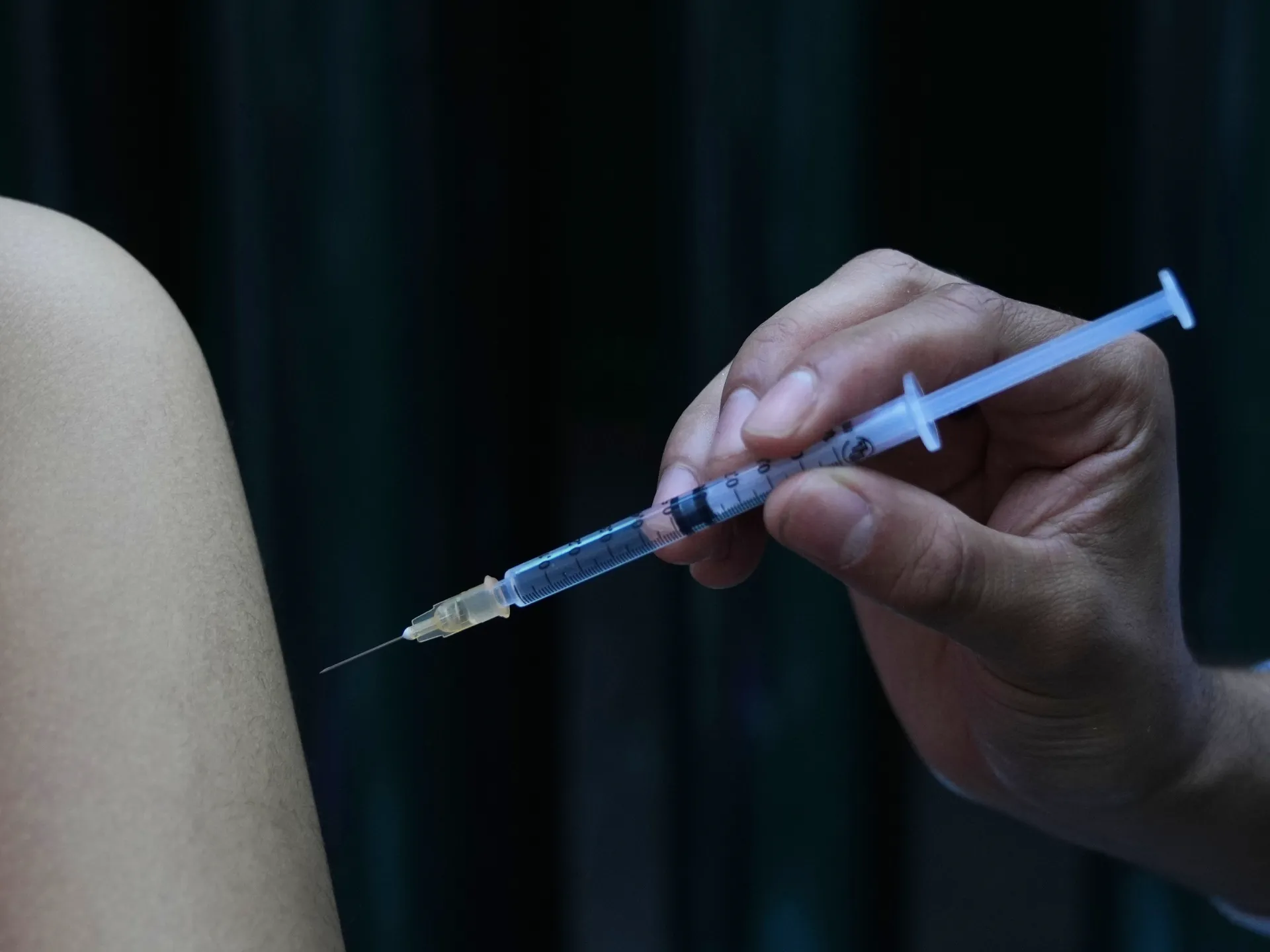L.A. police cases ending in dropped charges, losses and plea deals
A probation officer who was caught on video bending a teen in half.
A Torrance police officer who shot a man in the back as he walked away from a crime scene.
Seven California Highway Patrol officers who piled atop a man screaming “I can’t breathe” as he died following a drunk driving stop.
All three cases had similar outcomes: charges dropped or reduced to no time behind bars after a plea deal.
After a year in office, a pattern has emerged for L.A. County Dist. Atty. Nathan Hochman, who found himself saddled with a number of misconduct and abuse cases against police officers filed by his predecessor, George Gascón.
During his 2024 campaign, Hochman often chastised Gascón for filing cases he claimed wouldn’t hold up before a jury — while also promising to continue bringing prosecutions against police when warranted.
In recent months, Hochman has downgraded or outright dismissed charges in many high-profile cases that Gascón filed. In the two misconduct cases Hochman’s prosecutors have brought to trial, the district attorney’s office failed to win a conviction.
Those outcomes have infuriated the loved ones of victims of police violence, local activists and even former prosecutors, who say Hochman’s backslide on the issue was predictable after he received millions in campaign contributions from police unions.
Greg Apt, a former public defender who served under Gascón as second-in-command of the unit that prosecutes police cases, said he quit last year out of frustration with the new leadership.
“I had concerns that the cases were not going to be treated the same way under Hochman that they were under Gascón, that alleged police wrongdoing would not be given the same level of oversight,” he said.
Hochman has scoffed at the idea that he’s too cozy with cops to hold their feet to the fire, saying his campaign’s war chest reflected bipartisan support that included Democrats who have been critical of police.
The district attorney said he’s made decisions based on what he can actually prove in court, and argued case reviews within the Justice Systems Integrity Division have become even more rigorous under his leadership.
“I’m going to look at the facts and the law of any case. I don’t believe in the spaghetti against the wall approach where you throw the spaghetti against the wall, and see if anything sticks, and let the jury figure it out,” he said. “That would be me abdicating my responsibility.”
Hochman’s supporters argue he has restored balance to an office that was often filing cases against police that were either legally dubious or flat out unwinnable.
Tom Yu, a defense attorney who often represents cops accused of wrongdoing, said Hochman is handling things in a more fair and objective manner.

Former Torrance Police Officers Cody Weldin, center, and Christopher Tomsic, right, pleaded guilty last year in a conspiracy and vandalism case in which they allegedly spray painted a swastika on a car. Attorney Tom Yu, defense for Weldin, is seen listening to the proceedings.
(Genaro Molina / Los Angeles Times)
“By and large, he’s not going after the cops. But he didn’t dismiss all the cases either. I’m OK with that,” Yu said. “On a personal level, I think he’s doing a very difficult job in the police cases, because someone is always going to be unhappy with the decisions he made.”
It is difficult to win a guilty verdict for an on-duty shooting, with no such convictions in Los Angeles County since 2000. Laws governing use-of-force give officers great latitude, often protecting them even when they shoot someone who is later found to be unarmed or in situations where video evidence shows no apparent threat.
Hochman questioned why he is being criticized when the California attorney general’s office has reviewed dozens of fatal shootings of unarmed persons throughout the state since 2020 and filed no criminal cases.
“If you bring weak cases and you lose, it undercuts your credibility of being any good at your job,” Hochman said. “It undercuts your credibility in saying that we believe in the facts and the law and bringing righteous cases.”
Hochman brought 15 cases against police officers in 2025, according to documents provided to The Times in response to a public records request, compared with 17 filed by Gascón in his final year in office.
But while Gascón had a strong focus on the kinds of excessive force cases the public was clamoring to see charged when he was elected in 2020, Hochman has more often filed charges for offenses such as fraud and evidence tampering.
Hochman’s recent dismissal of charges against most of the officers involved in the death of Edward Bronstein has drawn outcry from his family and at least one former prosecutor.
Bronstein died after screaming in agony as six California Highway Patrol officers piled on top of him in Altadena in 2020. The officers were trying to get a court-ordered blood draw after Bronstein was pulled over on suspicion of drunk driving.
Video from the scene shows Bronstein arguing with the officers while handcuffed and on his knees.
The officers warn Bronstein they’re going to force him down to get a sample. Right before they do, Bronstein mumbles that he’ll “do it willingly,” but they shove him face down while a seventh officer, Sgt. Michael Little, films the encounter. A minute passes. Then Bronstein’s body goes limp.
Officers can be seen trying to revive Bronstein, calling his name and slapping the side of his head, according to the video. But several minutes elapse before officers attempt to deliver oxygen or CPR. He was pronounced dead at the scene.

Los Angeles County Dist. Atty. George Gascón announces he will ask a judge to resentence Erik and Lyle Menendez for the killing of their parents in 1989, a decision that could free the brothers.
(Allen J. Schaben / Los Angeles Times)
In 2023, Gascón filed manslaughter charges against the seven officers, as well as the nurse who carried out the blood draw. But late last year, Hochman dismissed charges against all except Little, whose case was reduced to a misdemeanor, for which he received 12 months of probation. Little is no longer a CHP officer, according to an agency spokesman.
Prosecutors are still pursuing manslaughter charges against the nurse at the scene, Arbi Baghalian. His defense attorney, Joe Weimortz, said Baghalian had no control over the officers’ actions or the decision to pursue the blood draw. Weimortz also said he believed the officers were innocent.
Bronstein’s daughter, Brianna Ortega, 26, said in a recent interview that Hochman’s decision to drop the charges felt like a betrayal.
“It just seems like because they’re cops … they must get away with it,” Ortega said. “How are you going to put the blame on one person when all of you are grown men who know better? You have common sense. You have human decency. He is literally telling you he can’t breathe.”
The Los Angeles County coroner’s office could not conclusively determine Bronstein’s cause of death but attributed it to “acute methamphetamine intoxication during restraint by law enforcement.” Bronstein’s family was paid $24 million to settle a wrongful death suit in the case.
Hochman said his office reviewed depositions from the civil case — which he said Gascón did not do before filing a case — and did not believe he could win a manslaughter case because it was impossible to say any officer specifically caused Bronstein’s death. Hochman said the officers had no intent to harm the man and were following orders of a superior officer.
“We looked at each officer, what they knew, what their state of mind was at the time. Understanding that there was both a sergeant there and a nurse, who was in charge of not only taking the blood draw but obviously doing it in a safe manner, and then deciding whether or not we could meet the legal standard of involuntary manslaughter for each officer,” he said.

Edward Tapia, the father of Edward Bronstein, speaks at a news conference about his son, a 38-year-old Burbank man who died while being restrained by California Highway Patrol officers in 2020 after refusing to have his blood drawn after a traffic stop. The family received a $24-million civil rights settlement in 2023 after filing a lawsuit against the state.
(Jason Armond / Los Angeles Times)
Bronstein’s killing was one of three cases in which Hochman assigned new prosecutors in the months before a trial started or a plea deal was reached. Aside from the Bronstein case, the others ended in an acquittal or a hung jury. All three prosecutors who were removed from the unit that handles police misconduct cases had either been appointed by Gascón or had a political connection to the former district attorney.
“When somebody’s lived that case for years, and then you take them off, it suggests that you’re less than serious about winning that case,” said Apt, the former prosecutor on the Bronstein case.
Hochman said he was simply bringing in staff with more trial experience on each case, insisting politics had nothing to do with the transfers. One of the cases, which involved allegations of perjury against L.A. County sheriff’s deputies Jonathan Miramontes and Woodrow Kim, ended with a lightning fast acquittal. Records show jurors deliberated less than an hour before coming back with a not guilty verdict.
In the other case, Hochman’s staff came closer to convicting a cop for an on-duty shooting than anyone else has in L.A. County in a quarter-century.

Former Whittier police officers Salvador Murillo, left, and Cynthia Lopez during their arraignment at the Clara Shortridge Foltz Criminal Justice Center in Los Angeles. Murillo was charged in a 2020 shooting that left an unarmed man paralyzed. Murillo’s trial ended with a deadlocked jury in November 2025.
(Mel Melcon / Los Angeles Times)
Former Whittier Det. Salvador Murillo stood trial in November for shooting an unarmed man in the back as he fled down an alley in 2023. Nicholas Carrillo ran away on foot from a vehicle stop and was leaping over a fence — unarmed — when Murillo squeezed off four rounds. Two severed Carillo’s spine, paralyzing him.
The jury came back deadlocked, although a majority of the panel was leaning toward a conviction. Hochman said it is likely he will ask prosecutors to take Murillo to trial a second time, though a final decision has not been made.
This year, Hochman will have to weigh in on a pair of politically charged police killings.
Keith Porter Jr., a 43-year-old father of two, was shot to death by an off-duty U.S. Immigration and Customs Enforcement agent on New Year’s Eve, a case that has gained national attention following outcry over on-duty shootings by ICE officers in Minnesota and elsewhere.
The Department of Homeland Security said the off-duty ICE agent was responding to an “active shooter.” Porter’s family has said he was firing a rifle into the air as a celebration to ring in the new year.
Melina Abdullah, the co-founder of Black Lives Matter L.A., was part of a group that met with Hochman about Porter’s killing and other cases last month in South L.A.
She described the encounter as confrontational — and a disaster.
“I don’t know how we can expect any safety and accountability with this man in office,” Abdullah said.
Hochman must also decide how to proceed with the case of Clifford Proctor, a former LAPD officer charged for shooting an unarmed homeless man in the back in 2015.
Proctor left the LAPD in 2017 and was not indicted on murder charges until 2024. Gascón reopened the case in 2021, after prosecutors previously declined to file charges.
On Monday, The Times revealed Proctor was able to fly overseas and live at home for a year without the district attorney’s office making any attempt to arrest him on an active murder warrant in 2025.
Hochman has not said if he intends to take Proctor to trial.
Hochman said that while he knows cases of police violence drive emotional reactions, he has to constrain himself to a cold analysis of the facts in front of him.
Reflecting on his confrontational meeting with Black Lives Matter activists, which centered on his recent move to dismiss charges in the 2018 killing of Christopher Deandre Mitchell by Torrance police officers, Hochman said he can’t pursue cases just because people are upset.
“They couldn’t point out anything in that analysis that they disagreed with,” he said. “Other than the result.”




